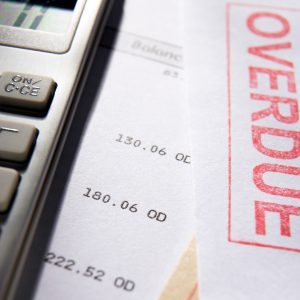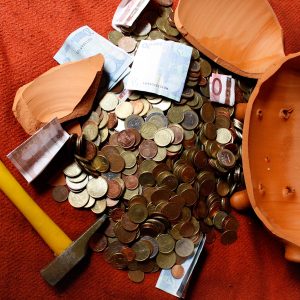Everybody needs an emergency fund. You never know when a problem will strike, but they always seem to cost large amounts of money. Instead of putting it all on your credit card, here are some tips to get yourself started so you have that buffer.
Choose a Savings Account Just for Emergencies

Have a separate savings account that is just there for when there is an emergency. This could be one attached to your bank, or you may have one separate so you can’t dip into it now and again.
You want to make sure it is easy enough to access though when it comes to an emergency. The interest rate doesn’t really matter for these accounts, since the money may not even be there to benefit from that.
Decide on the Amount You Want to Save

Think about the amount you want to save for an emergency. Consider the type of problems you usually have and the costs that they usually are.
Once you know how much you want to save, you can break it down into monthly amounts, or you can focus straight on the next step: your budget.
Can You Save That Amount?

Is it possible to realistically have that amount in your emergency savings account? If you want a few hundred dollars a month, you may be pushing yourself.
However, a few hundred dollars by the end of the year is possible. You just need to look into your budget and see how much disposable income you have available.
Don’t Push Debts and Other Savings Aside

It’s easy to think that you need to save for the emergencies and make it a priority, but you need to juggle various types of savings and debts.
Think about the debts that you currently have and make sure you can keep paying them.
The more you clear from your debt, the better your credit rating and finances will be. At the same time, make sure you keep putting money aside for your children, a new home or anything else that you have planned.
Encourage Others in Your Home to Save

It may be worth talking to the other members in the house about saving for emergencies. You can put all the money into one pot and it can then be used on the different situations that arise.
Make sure everyone puts the same amount into the pot if you want to do this. At least encourage your partner to put some money into the emergency fund, since the emergencies are more likely to affect the two of your similarly.
Don’t Dip Into It!

Decide what really counts as an emergency. Not being able to afford those gorgeous shoes in the sale is not a true emergency. Not being able to afford your electricity bill is.
Put your necessities before your luxuries when it comes to using that emergency fund. Avoid dipping into it. You will only regret it when you have a real emergency.